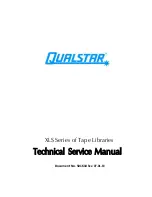
4.1 OSs Supporting Hot Swap
NOTE
Ensure that the server and BIOS support hot swap.
The following OSs support orderly hot swap of the ES3000 V5:
l
Mainstream Linux OSs:
–
RHEL 6.6, 6.7, 7.0, 7.1, 7.2, 7.3 and 7.4
–
CentOS 6.6, 6.7, 6.8, 7.0, 7.1, and 7.2
–
SLES 11SP4, 12, 12SP1
–
Oracle OEL 7.0, OEL 7.1, and OEL 7.2
–
Ubuntu 14.04 LTS, 15.04
l
Mainstream Windows OSs:
–
Windows Server 2008 R2 64-bit
–
Windows Server 2012 64-Bit
–
Windows Server 2012 R2 64-bit
l
Mainstream ESXi OSs:
–
ESXi 6.5 and later
The following Oss support surprise hot swap of the ES3000 V5:
l
Mainstream Windows OSs:
–
Windows Server 2012 R2
–
Windows Server 2016
l
Mainstream Linux OSs: RHEL 7.3 and 7.4
4.2 Orderly Hot Swap
You can insert the ES3000 V5 SSDs to running servers. For Linux and Windows, notify the
OS before hot removing the ES3000 V5. For ESXi OSs, notify the OS before hot-swapping
the ES3000 V5.
4.2.1 Orderly Hot Swap of a Drive in Linux
Operation Scenario
In Linux, perform the operations described in this section before performing an orderly hot
swap of an ES3000 V5 SSD.
Preparations
You have correctly installed the ES3000 V5 SSD on the server.
You have installed the Linux tool package. For details, see
3.7.1 Installing the Tool Package
.
ES3000 V5 NVMe PCIe SSD
User Guide
4 Hot Swap
Issue 07 (2019-03-19)
Copyright © Huawei Technologies Co., Ltd.
47
















































